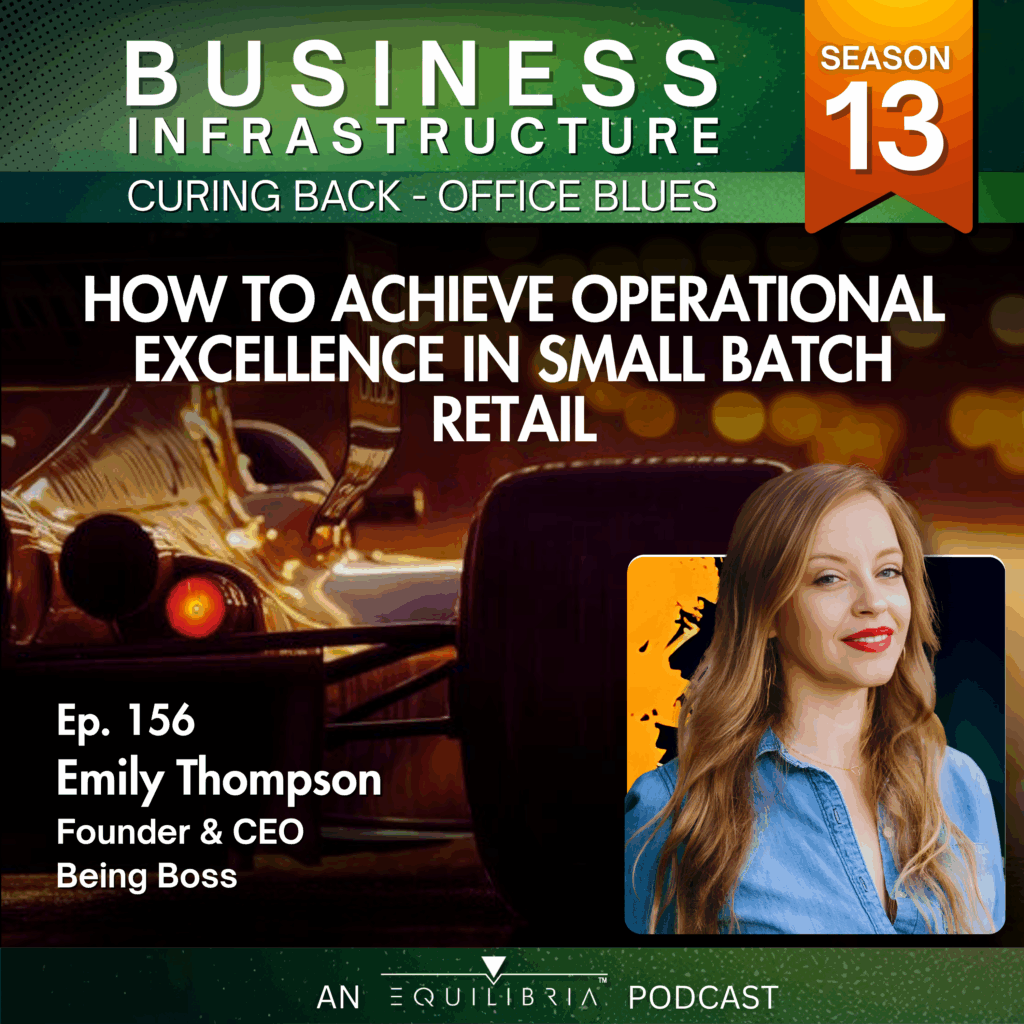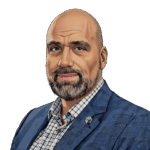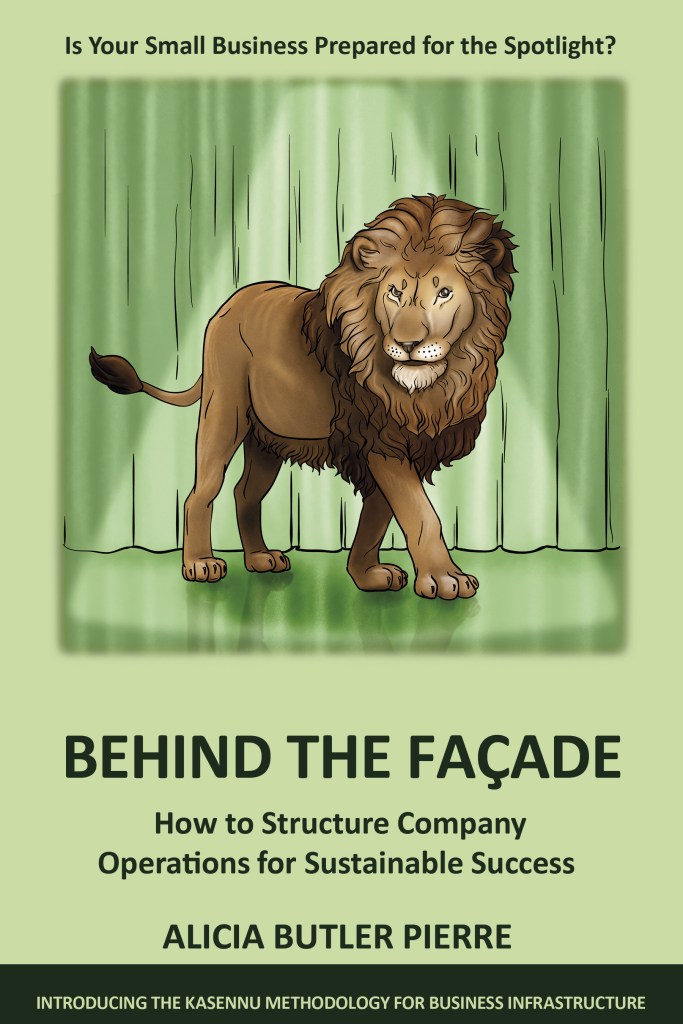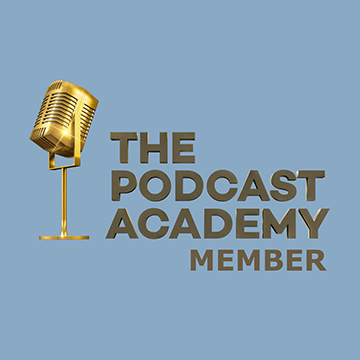Transcript
It’s been three years, over 150 episodes, and we’re still here. How do we keep this podcast going consistently week after week? I’ll give you a hint. It’s all about cultivating operations. Operational excellence, to be exact. Shopify.com defines operations as everything that happens within a company to keep it running and earning money. But with operations being vital to keeping any organization running, why does it oftentimes go ignored?
Hi, I’m Alicia Butler Pierre. And that’s exactly what this 13th season is all about. We’re going to welcome another group of phenomenal guests to help us explore this topic. They represent retail as well as service providers, and some have worked very closely with companies like Boeing, Toyota and Amazon. One even wrote a book about operations that sold over a million copies in its first six months. And there’s something every guest will tell you.
Operational excellence is more than just about process, but rather a mindset. And it’s about people. You have to be relentlessly in pursuit for quality, consistency and highly functioning teams. So get ready to take notes. We’re going back to school. This is season 13, episode 156. Let’s start the show.
Welcome to Business Infrastructure, the podcast about carrying back office blues of fast growing businesses. If you’re a business owner or operator looking for practical tips and solutions to scaling your business in a sustainable manner, you’re in the right place. Now, here’s your hostess, Alicia Butler Pierre.
Have you ever wished you had an on demand mentor that could provide advice on how to improve your customer experience and scale your business? HubSpot’s got you covered. Introducing the HubSpot Podcast Network. It’s a one stop audio destination for business professionals looking for education and inspiration on how to grow better. With access to a collection of marketing, sales, service and operations shows, you’ll have all the information you need as your company goes from startup to scale up and beyond. Listen, learn and grow with the HubSpot podcast [email protected] podcastnetwork having a tough time trying to explain ideas over a video conference?
Try the Think Smart Whiteboard. It’s the fastest whiteboard software in the world and allows you to upload, upload flowcharts and write on them while your colleagues are watching remotely. Call us today for a free demo. The number is 1-866-584-6804 or visit us online at getmytablet.com now that’s smart.
Think Smart. Okay, right now I’m sitting here in my office, totally relaxed thanks to a beautiful Labradorite stone that’s sitting on my desk and next to it is a scented soy candle that I’m burning is just the aromatherapy I need after a full day of work. And it was handmade by a company co owned by Emily Thompson. And guess what? She’s joining us today from Chattanooga, Tennessee. And I am so honored and let me tell you why.
Emily has a top ranked podcast, a large community of creative entrepreneurs, and a retail company dedicated to bringing nature into our homes. She’s the epitome of an entrepreneur. Better yet, she’s a boss. And today she’s going to share one of her many operational success stories with us. So without any further ado,
Emily, welcome to the show. How are you today?
I am literally, like tingling with happiness after such an amazing introduction. Elise, thank you so much. I feel more boss than ever.
Well, well, it’s my pleasure. And you know, Emily, you have quite the story. And I should first let everyone know how we met each other. I had the privilege of being on your again wildly successful and popular podcast, which is called Being Boss. And both of our shows officially became part of the new HubSpot podcast network, which went official on 5-11-20. So I am so excited that we’ve been connected with each other or to each other, I should say. And I’m just so glad that our paths have crossed.
Agreed. I could not agree more. And I cannot wait to see what we’re able to do together in the next couple of years. I feel like some good stuff is going to happen and we’re geographically close. I can’t wait to come down and visit you. It’s going to be so great. But yes, we have had the pleasure of connecting and I do feel like it’s just the beginning.
It is. So stay tuned everyone who’s listening, because you’re going to be seeing some great things coming from both of us. Now back to you, Emily. You’ve been an entrepreneur for a long time, so I’ve been reading your book. I’m totally engrossed. And we’re going to definitely talk more in more detail about your book, which is also called Being Boss. But I noticed, I was reading through your book and I noticed that your very first business was actually a tanning salon. Right?
Indeed. Yes, it was.
Yes.
And you were, you were just, you were like a teenager. 19 years old.
Yeah.
Wow. Impressive. Okay. And, and then eventually you, you had a web design company, you started your podcast, and now one of your latest ventures is your company Almanac. And it’s so interesting because as I’ve been reading about you and your story and reading through the book, it sounds like it all started with your love for geography. So I was wondering if we could actually start there. As you tell us more about yourself and this love and passion for geography, can you kind of walk us through how that eventually led to all of your entrepreneurial ventures and eventually to the company that you have now, Almanac Almanac Supply Company.
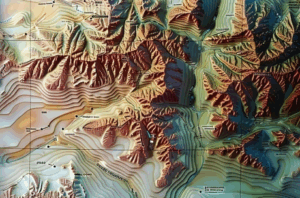
This is a super exciting line of questioning. Thank you so much for bringing all of this up. Because I don’t usually get to share my entrepreneurial journey through the lens of geography, but I really do see, I see so much how that really education and interest has fed into what it is that I do now. So I super appreciate you letting me dive into this little piece of it. I do have a degree in geography and it came from really a love of trees and nature, but also of traveling and of places. I have always very much so loved traveling. Seeing different landscapes, being in different cities, experiencing different different cultures. I mean, even from a very young age, my family always did a lot of traveling. It wasn’t like, you know, extravagant traveling by any means, but we would just sort of pack up and do weekend road trips. I felt like we were always on the road, just going to see new places or put our toes in a different beach’s sand or something like that. Experiencing different places. In college, I got the opportunity to take my first geography class. I remember I took it because I didn’t want to do biology or chemistry, right? I had to take a science class.
I was not really interested in either of those. So I took geography and I immediately fell in love with it. And I remember it was a class on landscape processes. Actually, I feel like I might be lying. It was either landscape processes or atmospheric processes. And both of them being classes that really share these large scale view of how the world, how the planet works, whether it’s weather and tides or how mountains are formed and those sorts of things. And I was completely fascinated with it. And as I dove further into that avenue of study, I began learning about the processes of humans on the earth, how it was that we moved into different landscapes and spread and mingled cultures and all of these things. And I was always completely enamored with it. And so I did end up getting my degree in geography at about the same time. I guess at that point I had already done the tanning salon thing.
I did that while I was, I was getting that degree and I ended up getting my degree in geography. And a month later I started the business that was my web design agency. So I was doing business around or during this study of geography. And I never really understood until a good bit later how much that deep education of literally processes fed into my understanding and ability to show up and build businesses. And since then, I’ve obviously put those things together. But something happens to your brain, right, when you are taught to see and understand processes on that large scale. And I’m talking like how mountains are formed and like not even across the vastness of a landscape, but also over thousands, hundreds of thousands, millions of years, you start, you gain this perspective of processes and understanding how one thing leads to another that I was able to thankfully sort of squinch down into how it is that one thing leads to another in business to create the things that I’ve been able to create.
So I do love geography. I love the planet. It’s definitely also fed into the theme of Almanac, what it is that we’re doing there. We are very nature conscious. We’re speaking about seasonal living, which is a whole other sort of process that we live through every single year. So it very practically has fed into what I’m doing at Almanac, but it has also very much so fed into how it is that I go at doing business.
That is so cool because I love how you, you know, I would have never tied processes to geography, but listening to you, it is a process, you know, whether we’re talking about, you know, as you said, you know, the tides, the formation of mountains. Studying. Are natural disasters also a part of the study?
So many things. So actually that’s one of the funny things in geography is that literally everything can be studied in reference to geography. Everything happens in a place. Right. So if you can, if you can put it on a map, basically you can study it through the lens of geography because there are things that affect it because of where it is. That is geography. So, yes, natural disasters, very much so.
And I think it’s interesting how you said that something happens to your brain when you start to study processes on a large scale.
Yeah.
And I, I can so relate to that because when you are process oriented, you start to become a little bit more methodical and always thinking about cause and effect. Nothing just happens just because it happened for a reason. What was the root cause that led to a particular result or an output? That’s so fascinating. You had this tanning salon while you were studying geography in college, and it was because of a natural disaster that led to you closing that salon down, is that correct?
More or less. It definitely fed into the reason. So, yes, I owned a tanning salon in Mobile, Alabama, and I had it during, or I was in ownership of it whenever Hurricane Katrina hit. And I, I stayed in Mobile. I did not evacuate. That’s like another story for another time. But my, my tanning salon, it. We had some water damage, I lost my sign. And there was a couple of things that happened that just wasn’t something that your own business owner really wanted to deal with. So we cleaned everything up, we opened back up. We, you know, weathered the storm and all the ways that you do. But I also wasn’t really equipped emotionally, I don’t think at that time to do all those things. And I had originally gone to school in Mobile because interestingly enough, maybe I was pursuing a psychology degree. And then I discovered geography along the way, ended up changing my major to geography and actually discovered that the geography department at the college in the town I grew up in was actually superior, like in the entire state. So it became pretty obvious to me as I transitioned my course of study that I needed to go home, I needed to go back to where I grew up and, and I needed to be in that department. So I sold the tanning salon a couple months after Katrina. So it all just sort of like fed together. But really it was my education that caused me to sell the salon and move on. It was at that point I put geography for the only time, maybe above business.
Okay, I’d like to read a quote from your book. And for those of you listening, Emily’s book, which is co authored by Kathleen Shannon, is called being Take control of your work and live life on your own terms. There’s this quote that really resonated with me. Doing the work is what makes you look like an overnight success 10 years later. So considering this deep education that you have into geography and these large scale processes combined with your experiences and as a serial entrepreneur, you obviously have an appreciation for operations. But I’m curious, in your opinion, Emily and I know this is something that you and I talked about, I think, during our very first conversation when we were first getting to know each other. Why, in your opinion, do you think operations is usually an afterthought for so many small business owners?
Oh, because they’re driven by passion, right? They’re not driven by the science, by the structure of their business. They’re driven by this desire to make impact and do the thing. And so there is this look at the end result, which maybe even goes back to that quote that you pulled this Idea that we want the success, but not necessarily the process, which is the word that I will use for this. And process being the very large scale of like the 10 years that it takes for you, the whole process of entrepreneurship that leads you to whatever, you know, this quote unquote, final vision of success is for what you want to build with your life. We get so caught up in that, like end result, the impact, the doing, or not even the doing, but like the having done.
Yes.
That we forget that there is doing that is required to achieve that. And so, so I think that business owners like, we don’t get into it because we want to be great project managers. Right. Or be great at documenting processes or great at TR others and doing the processes for us. Like that’s no, very few people’s passion lies in that you and maybe I excluded from that. Right. So it is an afterthought. They get into it. They, you know, start feeling a bit of, of that impact, a bit of the success. They’re sort of continuing to shoot for their goals. And then they realize though that for them to more easily achieve those, they have to go and do the operations, get those in order so that they’re working smarter, not harder.
I love that quote. We want the success, but not the process. That is brilliant. That really hits the nail on the head. It truly, truly does. Beautifully said. So what’s also really cool about your background, Emily, is that in the world of processes, we generally categorize them into two main categories, transactional processes and manufacturing. And you’ve done both. So transactional meaning usually typically those are associated with providing a service of some sort. And then manufacturing obviously is when you are physically making, you’re producing and manufacturing tangible goods. So I’d like to focus on Almanac Supply Company. Can you tell us a little bit more about the product line that you have there with your retail company? And, and you know, clearly you have to have run a tight operational ship. So I’d like for you to kind of share with us at a very high level what operations actually looks like at Almanac.
Oh, high level. There’s a lot, but also. Also kind of not. But you are also completely correct in that we have to run a tight ship when you are doing what really is small batch retail, which I think I might have just coined that. I don’t know if that’s real or not, but that’s what I’m going to call it, small batch ret. You have to have everything so tight because your profit margins are so tight and so we have to. And we’ve been working especially hard over the past year to really get our candle making processes as tight as possible. So but brief overview of what it is that we are, what we’re producing. We produce a couple things in house and is a mixture of produced in house and sourced from other places. So in house we produce our candles, we have a line of seasonal candles and then a local Chattanooga themed candle because we do have a very strong local presence. We make a couple of jewelry pieces in house. So gemstone, bracelets, some earrings, those sorts of things. And then we source crystals with candles and crystals being our two core products. So we source, we obviously don’t make crystals. Those take millions of years. We just let the earth do that.
Work, work. We source them from vendors all over the world and then there’s sort of, I call them just our auxiliary products, the other sort of seasonally themed products and nature themed products that we carry to help flesh out the brand. So things like books, things like T shirts which most of those we do design in house and then have printed locally as well. And I’m trying to think what else we even have and oh, we have like bandanas and, and just sort of other personal goods like that. So. But the core of it is candles and crystals. We make candles in house, source crystals from around the world. There’s a couple other things that we both make and source from other vendors.
And I’d love to take a deep dive into that candle making process of course, without revealing any proprietary information. But before we do that I would, you know, let’s go ahead and take a quick break to hear a word from our friends over at HubSpot. As your business grows, things get more complicated. A CRM platform that has been cobbled together gets clunky as you add more users data and processes, slowing you down just when you need to speed up. That’s why HubSpot built a powerful CRM platform that’s easy to adapt to your customers expectations and changing business needs. It’s built from the ground up to help you solve for that complexity, not add to it. With HubSpot you can customize your CRM platform to meet new customer expectations, move quickly when new opportunities emerge, and easily manage a growing user base as your company scales.
Without of the box automation tools, a centralized customer database and a scalable platform that’s delightfully easy to use, your team can pace with the changes in the world, however unexpected they are. With over 650 ready made integrations, HubSpot makes it easy to add the world’s most popular apps to your tech stack, allowing you to adapt to your customers needs. Always learn [email protected] okay, so Emily, you were starting to talk in detail about the product line at Almanac Supply Co. With candles being the product that you definitely make in house.
And you know, I know this is an unfair question, but I’m going to ask if you can share at least one success story, operational success story, the behind the scenes stuff that your customers never see, but yet it lends itself to their experience with your company. Before we dive into that, I’d first like to define what business infrastructure is because I want to take a deep dive into your candle making processes and an operational success story that you can share with us from a business infrastructure perspective. So if you’re listening to this show for the first time, business infrastructure is a system for how you link your people, your processes and your tools and technologies to ensure that growth happens in a profitable and sustainable way.
There’s another quote actually that I want to read from your book as well that also resonated with me and it was listed as one of your favorite intentions. And that quote is, as creative entrepreneurs, we aren’t at a loss for ideas, but organizing intentionally can bring much needed systems and processes to the business of doing what you love. So with that in mind, would you mind sharing with us kind of the juicy behind the scenes details, Emily, of one of your operational excellence success stories?
For sure. I love all of that and I will say I think it just is candle making in general and I definitely need to give you some context for that because you’re okay. Candle making probably isn’t that difficult, but where we began and where we are now is like worlds apart. Whenever we started creating candles for Almanac, Almanac started because I wanted to, or we wanted to really curate products for seasonal living. But it was candles. Candles and crystals is what it began with. And when we started making candles, I was doing it in my kitchen in like a little like electric stock pot situation on my kitchen counter, doing a dozen candles at a time, sourcing things in quantities where we were making almost no money, if any at all, and it was not very productive. However, I knew that we just needed to get things off the ground and that that was sort of my cost of doing business, right? Those were my startup costs. Like, like create products where you’re making no profit just to start building an audience and getting people in the door.
So where we started then was a hot mess in my kitchen. We had Boxes everywhere. I mean, I was. I’m definitely like. That started in my kitchen founder story, right? I had boxes of candle wax in my dining room corners. I had candle containers every. Like, there were days I couldn’t even walk in my house because it smelled so much like. Like different kinds of candles that I couldn’t even stomach being in here anymore.
Oh, wow.
That’s where we started. And these days, our candle production goes down, like, almost to the minute of productivity. Like, we have everything scheduled out almost to the minute. We have all the processes gorgeously lined up so that the team can go in and the team. I haven’t made candles in years. I will say that I started making all of the candles myself. I have not been a part of a single part of the candle making process in probably three years. And we’re like three and a half years old. So immediately I started putting things into place. I handed off candle making. We’ve handed it off again. We will probably hand it off again and bringing in more people to assist. But in order to do that, we’ve had to obviously fix that process. So we got an office or we got a maker studio space. And we have worked to.
To get the process, the operations of candle making down to a science so that literally anyone can do it. We’re actually entering into another hiring phase for candle makers. And I’m doing it with more ease than I have ever made a hire before in my life because I know exactly who needs to come in to do it. And I also know that I can teach almost anyone how to do this work. And the processes are so easily outlined and our studio space is so well set up for productivity and all of our tools are at easy access, all of these things that we can just make it do. And we have not only set up the process of candle making to be so streamlined and efficient, which we actually just recently did a whole nother audit of that process so that we could attempt to increase productivity again or productivity and profitability again. But we also have planned out our production schedule. We do it once a year. We plan out the entire production schedule for the entire year based on forecasting. And really always, as you do in retail, always preparing for the holiday season, because on January 1, you are preparing for December.
Wow.
It’s something you are consistently doing. And so we do that once a year. We sit down and we’re planning out our entire production run and for the entire year so that we always have enough stock and enough in place so that we can just continually fulfill and our Candle or our order fulfillment is never at the sort of at the mercy of candle production. We always have things in stock and we can move forward. Granted, 2020 was a little difficult because sourcing became a little difficult. But even then, because our processes were so streamlined and because we’ve been so great at production planning, we have really only now in mid-2021 sort of felt any strain. And that’s from long standing shortages and candle containers, which is a thing in itself. But even then, the hit that we’re taking is relatively small and I think the end is very near in sight. So really, for us, for me, like, what processes are you most proud of? Like, what is your organizational success story? It is Candle at Almanac because we have got it down to a science.
And I know that has to be an awesome feeling to truly have it turnkey, because these are the things. This is the stuff made of legends, Emily. The things that all of the books talk about, right? Working on your business and not in your business, and truly being able to walk away for months, maybe even a year or two, and know that it can still operate full steam ahead without your day to day presence. Now, going back to these different elements of business infrastructure, so the people component, or the people element being one of them, I noticed there’s another term that I really like that you use in your book, and that’s your wolf pack.
Oh, yes.
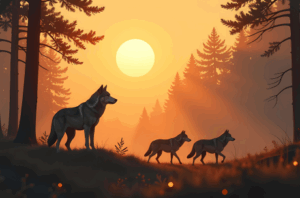
So who makes up your company’s Wolfpack? And before you answer that question, can you first, first tell our listeners what is a wolf pack?
So your wolf pack are your people, right? They’re the people that you can rely on. They’re the people that have your back. They’re the people whose back you have, right? You can lean on each other and you can count on them to do their work just as much as they count on you to do yours. There’s this mutual respect, this mutual appreciation, this mutual benefit that comes from these relationships. And it’s something that I bring very much so into my team. So usually whenever people think about Wolfpack, they think about their peers or their friends there. But not usually. Well, sometimes they’re colleagues, if they are employees. But very rarely do you find bosses, the people who run the business thinking of their, their employees, their team as their wolf pack. But that’s something that I’ve very much so brought into and to how it is that I build culture, both at Almanac and at being boss. So I appreciate that. I appreciate that you phrased it that way because that very much so how I think about it but my team at Almanac is actually incredibly small. We have me, obviously we have my partner, both my life and business partner, David. He runs all of the accounting and admin. But David also really loves packing a box. That is, he loves that. So he gets such great pleasure, really.
And I’m a well packed box, I must say from the, the products that I have received, they are very well packed and it’s very impressive.
It’s an art form. He has taken it to an art form which I very much so appreciate. But then we also have, we have sort of our right hand lady who runs, sort of runs everything under David. So she’s doing all the customer service, she’s also fulfilling orders. She works on some sort of top level, sort of not really marketing. There’s such a fine line between content creation and marketing. But I definitely think of it more content creation and educational than I do marketing and assisting in occasional graphic support. So she’s just sort of like a Jane of all trades. That really is our right hand and is the person that we leave the business to whenever we go on vacation or you know, need to take a couple days off or whatever. We actually recently went on vacation and she ran the show and we didn’t talk to her for a week. And it was beautiful. Everything worked exactly the way it was supposed to. And then we also have a small remote team of sort of tech support. So I have someone who assists me with marketing specific tasks and then a developer who assists with website maintenance. So we are a very small team, but we’re also in a growth phase. We’re currently looking for a couple more people to help us. So we’ve been this sort of of pretty small team for, for about two years and I think will potentially double in size by the end of this year.
Yeah, that’s fantastic. Okay, so as we’ve talked about the people component, now for the process component, something else. You know, there’s all of these amazing quotes from the book. That’s why everybody has to go out.
And get your book.
So this was another quote from the book, you know, never be above doing the small or grossest of tasks. That is so important because something that I always tell people on my team is because I know sometimes I can just, even though I can’t always see them because we’re working remotely, I can just see them rolling their eyes like, oh God, Alicia, really? But I always have to tell them, trust me, if I’m asking you to do this, it’s for a good reason. And it’s intentional. And I’m not asking you to do anything that either haven’t done already myself or that I wouldn’t do.
Yeah.
So I love the fact that you said that because again, speaking from an operations perspective, and it makes me think about that show Undercover Boss where you know these. The bigger an organization gets, the bigger a company gets, the more removed you are as the leader, as the CEO from what’s going on at the ground level. But that’s why I thought I wanted to bring bring up that point from your book is you can’t be above it. And it helps you understand when you know what’s going on. Those. When you know those nitty gritty details, it does roll up into setting the vision and overall strategy for the company and vice versa. You may come up, you know, for those who are thinking, well, I’m just not a detail oriented person. I don’t think in terms of dotting all of the I’s and crossing all of the t’s. Okay, well, if you are a big picture thinker, a visionary, you still have to make sure that that vision can actually be executed. And that’s why that operations piece is so important, because you can have the vision, but if you don’t have the processes and the systems and the tools and the right people to actually make it happen, it’s just that it’s just a vision. So with that being said, you did reference the candle making process. So it sounds like it took you about six months to really perfect that process to the point where it was or it is turnkey. You can just bring other people on, train them, and you have the space to do so that the physical studio space to do so. Are there any other details? Again, without giving away any proprietary information? Because. Because here’s something else that’s really cool about Emily’s candles. They come that they’re these beautiful stones that are embedded within the candle and they smell phenomenal. Even my husband, my husband never comments on stuff like this, Emily.
But he.
And it was out of the blue one day, he was like, yeah, that candle that you’re burning, I like that. You need to get more of that. I was like, really? You like it that much? She was like, yeah, I really, really, really like it. Here’s what’s interesting. He said, it reminds me of nature. And I was like, yeah, that’s. That’s the whole point. Right? Isn’t that cool?
So, yes. Yeah, yeah.
So are there any other details that you can share with us about the process of actually making the candles? So we know you have the studio space. And what are some of those other details that you wouldn’t mind sharing with us?
Of course there’s a couple of things that we noodled over a lot to really make it easy for someone else to do it. Because something like candle making currently, it’s funny I mentioned, actually I want to, there’s a couple things I want to mention here. There’s some good things I want to touch on here. You mentioned the quote of like we can’t be above doing the work or whatever it was that I said. Whatever I wrote that time, I can’t remember. But this came up for me because of all of the sort of bosses that I have had and the jobs that I’ve had in my life, right where I always had such a hard time respecting my bosses who were getting me to do things that they would not do. Like they were handing stuff off to me because they didn’t want to do it themselves. And so I always said that, you know, whenever I grew up and have my own business, I will never make anyone do something that I’m not willing to do myself. That’s sort of been my little, my little mantra as I have hired people and developed processes and grown teams and businesses and things like that. Is that something that I’ve always held true? And I’ll never forget the most intense embodiment of this was at the height of my web design studio. We had 15 sort of employees and contractors. We were doing five figure projects running multiple a month. I mean it was, it was a big operation for me at that time.
And I’ll never forget sitting in my studio and the team was all working like everyone was at their desk just clicking away and I didn’t really have much to do, which is like sign of doing it right, of winning, like boss winning a little bit. And I remember thinking, you know, what needs to be done? That toilet really needs to be cleaned. And so I remember getting up and going and getting the cleaning supplies and cleaning our bathroom because like everyone else was busy working on client projects like doing their work. I’m the one with free time and the thing that needs to be done is cleaning the bathroom. So I just want to say there is something, something to that for sure.
And I don’t know if that was necessarily the right call, but it definitely like my employees very. I don’t, I’ve never been questioned right as to like they know that I am willing to show up and do the dirty work very literally sometimes. So I also want to say too, around the candle making process, I mentioned that I haven’t, that I personally haven’t done it in three years because I don’t know how to anymore. Wow, let me do it. It would not be good for anyone if I were to make candles. I was great at making candles 12 at a time in my kitchen. I did not.
I do not even know where to be in with a wax melter that holds 50 pounds of wax or how to process 150 candles at a time. It has scaled so much further than my own experience in candle making that they don’t want me to touch it because I’ll just mess it up. And granted, all I have to do is go to the documentation and I can take all the steps to do it. But everyone knows that my time is better spent somewhere else. They will take care of that, which I very much so appreciate. So there is also that element of it. It simply has grown larger than my own skill level with that particular task. What my job has become has definitely been making sure those processes are efficient and effective and optimized and recorded and off boarded to someone else if and when needed and all of those things. And so one of the things that I’ve always prioritized as much as I possibly can along the way is whenever new things are happening in either of my businesses, I want to do it. Let me do it first. Let me figure out, just let me experience this, like what does it look like to you know, make gemstone bracelets? Like let me make a couple of bracelets. We’ll figure this out. And I do this for two reasons.
And I can, I can think of very few processes in my business that I have not done at least a couple of times because I want to see if it makes any sense. Yes, right. See if I what, what my process oriented brain can do to optimize it and to really just sort of get a handle on who would best fill the position that is needed to make this happen. And so I believe that by getting into all of the processes of your business, you’re able to and just try it first. You don’t have to do it forever just because you, you know, manage your own, I don’t know, process. Just because you do it once doesn’t mean you’re going to do it forever. Right. But get in there and try it. That’s how I do business. That’s how I like to do business. And I think I know my team sees me getting in there and getting my hands dirty and then helping Them make it amazing, whatever that process is that they’re going to have to replicate over and over again.
And I dive back into it regularly. So we actually just did this. So getting back to answering your question, thank you. Is is this candle making process? So at the beginning of this year, we actually sat down again and we were like, okay, guys, we need to look at profitability of candles. Here’s what sells were for 2020. Here’s how much money we made on it. You know, we need to. We need to squeeze in retail. You always have to squeeze a little bit more profitability out of things because the margins are so incredibly tight. Tight. So what can we do? And so we sat down and started going through the entirety of this process. What does it look like? And I sat down with the team, like, okay, what do you do first? Where do you feel hiccups? What do you do second? Where do you feel hiccups? And we went through every step of the process and I made tons of notes. And then we actually went into the studio and I was like, okay, you know, where are these things stored? Where, like, how are you walking around this table? What does it look like for you to move from the candle melter to the table, like, all of these things and really going through all of these pieces of the process with them so that we can optimize it. So we’ve done that this year. We will likely do that again in a year or at least in two years to do it again. And one of the things that we came up with, one of those, like, little tweaks that I feel really made it, was we were having as part of the candle making process. And anyone who did it, because both my partner and our right hand has the ability of or they are both primed for candle making in all of the ways.
And so regardless of who’s doing it, we decided that we needed to be a little more concise with some time tracking so we can count up or measure profitability, calculate profitability, I suppose. And then also just sort of continuously keeping a record of productions so that we can continuously keep an eye on tweaks that need to be made of the process. And one of the things that we initially did, because we are millennials, is we made a spreadsheet on a computer, right? And we found that almost immediately it started taking longer for candle production. And I was like, guys, this makes no sense. Like, we’ve literally tightened up every part of the process. And then it hit me why this was so. Because every time you go to the spreadsheet on your computer to type something in. You remember that email that you needed to answer or you saw a ding on Slack and you wanted to check it or whatever it was. And I was like, okay, actually, guys, we’re scratching the spreadsheet. I want you to design and print out a piece of paper. I want the production process to be documented and. And making notes of where we had to throw out wicks. Right. So we could track material, inventory and that sort of stuff. I want that to be done on paper, and I want no computer to be touched during the process. And immediately our candle making process time dropped and it became the tightest ship that anyone could ever sell.

That is fascinating and it’s so true. You can have the best intentions in the world getting onto your computer. You have one thing that you want to focus on getting done, and then, you know, something pops up, some type of alert, a notification. Hey, Emily, you know, in your mind you’re thinking, oh, let me just quickly answer that.
Yes.
And then before you know it, you forgot why you got onto your computer in the first place. That happens to me all the time.
Right.
I’m totally guilty of it.
In candle making, it’s the worst because there’s like, precise temperatures that you have to pour candles at. So you pour it at one temperature, you wait for amount of time for it to reach another temperature, and then you pour it. But if that email takes you longer to answer than it takes that wax to cool, guess what? You have to pour that wax back in the melter, get it back up to temperature before you can pour it again. And so, like, it really has the snowball effect to really throw an entire operation off. And the one little tweak was taking it off the computer and putting it on a piece of paper.
Wow. Now, with that piece of paper, is that eventually scanned and stored somewhere digitally or how.
It’s funny, we haven’t done that yet. They’re currently sitting in a folder. David actually got them out for me the other day. Yep, they’re in a folder in our. In our file. In our file. What’s that thing called? File box, Filing cabinet.
I don’t know what they’re called.
Guys, My Google Drive. I don’t know. No, in my filing cabinet. David actually got them out for us the other day so that we could look at them because I again, I wanted to see where we’re looking at hiring another candle maker. I needed to make a job description and I needed to look at those reports. Reports to see how much time it was taking to produce candles and so like we’re not digitizing them yet. I love that idea. We should definitely do that. That’s why we have a scanner, is it not? What else am I going to use it for? But we do save them in a folder and pull them out and reference them.
Wow, that’s awesome. And I love the fact that you had to go back to an analog way, low tech way of ultimately improving the process.
Yeah, it made it way better.
Isn’t that funny because we always we’ve been so conditioned to think that we need high end tech to dramatically improve and streamline and automate certain parts of our processes. But sometimes you just need to go back to the basics and keep it simple. Yeah, I love that. I love that Emily. So I know we have to start wrapping up. You and I can go on for for hours more, I am sure of it. But I’d love if you could share with us some of the resources that you recommend where people can listeners can go to learn more about how to just for tips even on how to improve their day to day operations. Are there any resources that you can recommend or that you share or things that you’ve come across that you found to be incredibly helpful?
Google, I think it’s really just chock full of great information. Do you know where to find it? No. One of the things that comes to mind first for me is a book called Clockwork by Mike Michalowicz and he wrote Profit First. He’s written a book called Fix this Next. The Being Boss community is unofficial fan club of Mike Michalowicz. I’ll just say that here we are not sponsored in any way, shape or form but like we’d have coffee with them anytime. But Clockwork is a great book for really setting your business up so that it will run like clockwork. And one of the things that he shares in there is this idea of a queen bee role. Understanding what sort of the pivotal purpose of your business is and then creating all of your operations to support that queen bee role or qbr. It’s some work that I did a couple of years ago and the team and I still talk about it right. We still reference our queen B roll and really shape a lot of our all. Well if we’re doing it right, all of our operations to support that queen be role. So Clockwork by Mike Michalowicz. He’s a really fun and easy business read. He’s not dry. Everyone who reads it’s like oh I love the way he writes it’s. A really good one. But I also recommend, I’ve read all of his books since Prophet first and recommend all of them, but Clockwork is especially great for this kind of work.
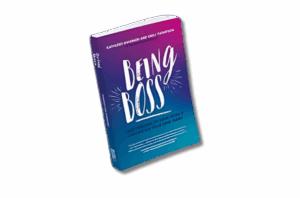
Awesome, awesome. And we must plug your book being boss, take control of your work and live life on your own terms. And if I, if I may just quickly say this, I love the fact that first of all, it’s a beautiful book on the outside and inside chocked full of valuable information. But I think what I love most are the worksheets. And there’s a website, right, that people can go to to actually download these worksheets. I’ve personally found the find your values worksheet to be very helpful. So I’m actually going through that exercise right now because it’s going to help help shape the company culture that isn’t technically defined on paper yet. But I think going through that particular exercise with that worksheet is going to help me get there.
Oh yes, it is. Okay. Yes, perfect. So, yes, everyone will get that book too. I love that you said it was beautiful. One of our intentions for creating that book was always that we wanted it to be a beautiful book. We wanted people to look at it because our crowd is creative entrepreneurs in particular. I mean, one of them just want to touch it, just want to pick it up and touch it. And yes to the worksheets. Worksheets are part of our process for how it is that we share information at being boss and how it is that we get our, our audience to engage with the things that we’re talking about. So I love that you brought that up as well. And then that find your values is at the core of what we do at being boss. If you don’t have a copy of the book, you can go to beingboss club Values. We have a whole page for it. And then, Alicia, you and I will talk about values very soon because. Because this is incredibly important.
Absolutely. No doubt. And I must also plug the HubSpot podcast network because again, both of our shows have the privilege of being part of the first six podcasts to be a part of this network. And we were all hand selected guys by HubSpot. That’s a really big deal, especially when you think about the numbers of podcasts that are out there. So. So I’m incredibly honored. I know you are too, Emily. So I just wanted to make sure that I, I plugged that also as, as a resource, but in particular your podcast as well. So can you, can you talk a little bit more about the being Boss podcast for sure.
You can listen to being boss anywhere where you listen to being boss or listen well, yes, that. But anywhere where you listen to podcasts. And the podcast is about mindset boundaries, habits and routines, community and life and work as creative business owners. And we’ve talked about this with or together Alicia, this idea of what is a creative and I imagine that if you are in any kind of business where you want to do things differently, you are a creative. And so it’s all content for people who want to step outside the box box and do business in a way that is a little more fulfilling, a little more aligned with who you are and what it is that you want. And with a, with a real focus on doing business, that feels good.
Amen. Amen to that. What’s the best way for people to connect with you, Emily?
Definitely find us at BeingBoss Club. You can sign up for our newsletter. We I do a little bit of writing for that. And then if you want candles and coffee crystals, you can find those at Almanac Supply co dot com.
Well, before I let you go, just I’d like to recap your operational excellence success story with us. I love the fact that you kind of took us on this journey of how you’ve gone full circle with your love for geography and studying these large scale natural processes and how it’s linked itself. Having that deep education, as you described it in geography, has served you so well across so many different industries. The fact that you’ve been able to do again, the transactional side of business processes, as well as that manufacturing side is incredibly impressive because there aren’t a lot of people out there that can easily make that transition. So kudos to you, Emily, for doing that. Just want to point out a couple of things that again, really stood out for me personally. I love when you, you said we want the success but not the process. So you know, with this show, we’re definitely trying to put operations on the map.
Show us some love us operations folks out here. But to your point, I thought it was, it’s a very poignant point, the fact that as entrepreneurs, as founders, as small business owners, you’re right, we do want the success and not necessarily get bogged down in the details and into the weeds. We’re the big picture strategic visionary thinkers. I love the fact that you coined small batch retail. I know you have an intellectual property attorney that you work with. So yeah, you might be onto something there. Yes, definitely give her a call because I definitely think you’re onto something there. But if we could just talk about the process that you walked us through with your operational excellence success story.
Wow. Just three and a half years into the company and six months in, rather into your company, you were able to completely, not only did you delegate, you delegated the core service of your company. That is a scary thing, Emily. Do you know how many people they’ll delegate everything else, all of the back office stuff, they are not going to let go of that core service or product offering.
So the fact that you were able to do that, that so early into your business is incredibly impressive. And you are definitely setting yourself up for significant returns on the investment of your time and effort in crafting these processes and making sure that you improve them along the way.
So just to kind of recap what you shared with us, you mentioned the importance of first doing everything first, doing everything yourself first. Get your hands dirty, don’t be afraid to do the work. Then you mentioned the fact that you optimize. You study the process, you then figure out how to optimize it, understand where those bottlenecks may exist and how can you either eliminate those bottlenecks or at least minimize the effect of those bottlenecks on the overall process. Third, you mentioned the importance of, of delegation, obviously, but also documentation.
And I thought it was so interesting that you mentioned making that one tweak of getting the process out of a digital format and onto paper, which it’s usually the opposite, that we hear people talk about where they go from paper to digital. I thought that’s so amazing. And how. What’s the word? I’m drawing a blank now. But, but it’s, it’s very, it was a very insightful thing for you to do and it definitely took keen observation to be able to pinpoint that that in fact was the cause for a major process bottleneck. I also love the fact that you mentioned, I think this is kind of fourth in our list for the process, keeping an eye on the profitability and the production schedule and the fact that you are create, you and your team get together and you make this production schedule at least one year in advance based on previous forecasting. And then lastly, you always keep improving.
So I love the fact that you mentioned that you and your team do a process audit at least once a year and that’s how you’re able to keep that cycle of continuous improvement. This was absolutely phenomenal. I can’t thank you enough. If you want more details About Emily, her BeingBoss podcast and her retail company, Almanac Supply Company, make sure you connect with her at either BeingBoss Club or Almanac Supply Company. And don’t forget, if you want to take your business to the next level, as Emily says at the end of her podcast episodes, do the work. Emily, thank you so much, my friend, for coming onto my show today. I really appreciate it.
Oh, it was a pleasure. This is the best thing I’ve done in too long.
Thank you. I’m glad you enjoyed it. Now, for those of you listening, don’t forget to check out BusinessInfrastructure TV also, because that’s where you’ll be able to see links to all of the books that Emily shared with us as well as the website. We’re also going to try to see if we can have links to those worksheets that we talked about from her book, but the only way you can get your hands quickly on that information is to go to BusinessInfrastructure TV. Look for season 13 episode 156, and while you’re there, you’ll also see more information about our sponsors. Please support them because when you do, it helps us keep this show free for you.
Thank you so much for tuning in and for being a loyal subscriber. Remember, stay focused, be encouraged. This entrepreneurial journey is a marathon and not a sprint. And I have a new slogan to add. Keep operating as good on the inside as you look on the outside. Until the next time, thank you for listening to Business Infrastructure, the podcast about curing Back Office blues with Alicia Butler. Pull Air if you like what you’ve heard, do us a favor and subscribe. Leave a rating and review, and more importantly, share with your colleagues and team members who could benefit from the information. Join us next week for another episode of Business Infrastructure with Alicia Butler. Pierre.
![]()
![]()


